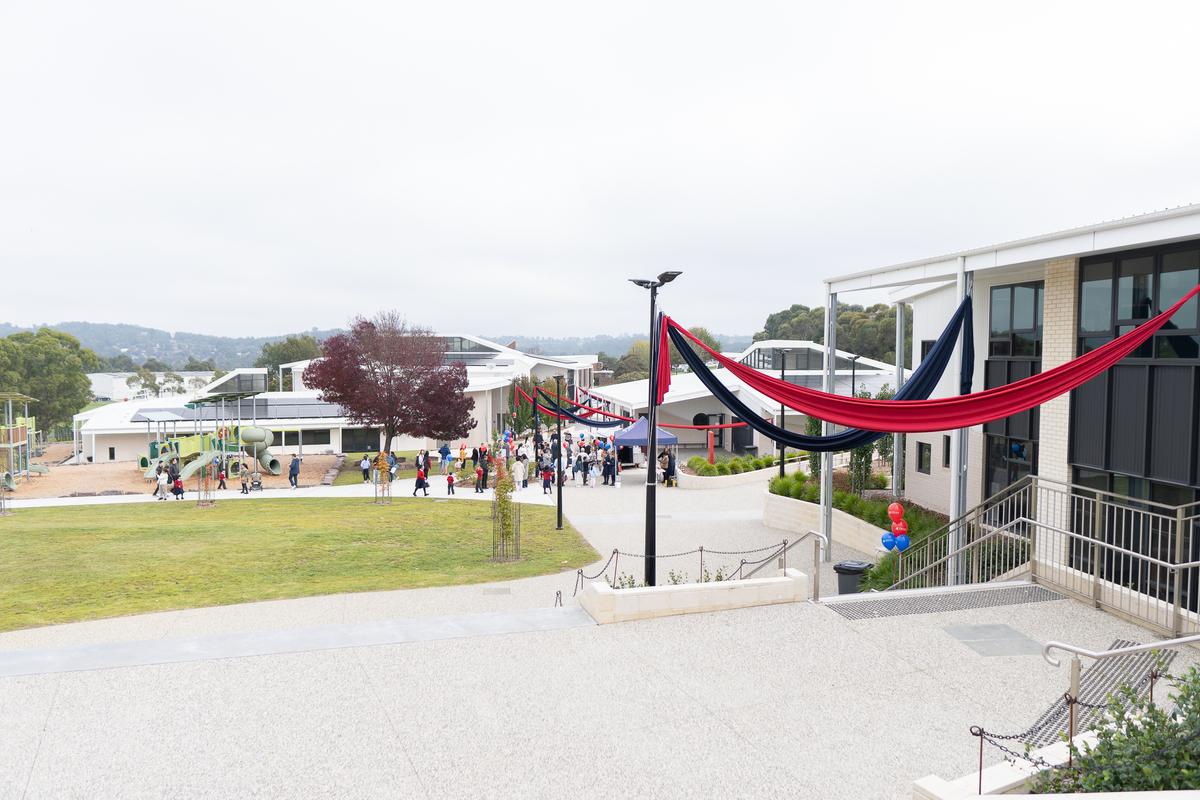From the Principal

Dear Friends,
We warmly welcome families into the second term, and trust students have begun well in their studies.
It is a pleasure to note our deep appreciation for families who attended the College Open Day, and especially for students who were College ambassadors for the day. It was a wonderful time of music performances, classroom interactions, celebration, food and welcome to new families as they visited the various activities in some delightful weather. Given another high attendance, we were able to showcase all our new buildings and new landscaping to the enjoyment of hundreds of guests.
I also acknowledge the wonderful recognition of ANZAC Day in a service that was conducted by College students in the first week. With a focus on Australia’s role in peace-keeping missions across the world on this occasion, students did a brilliant job of remembering the sacrifice paid for the freedom of nations.
Celebrations for special occasions are always appreciated and so we wish all the ‘mums’ of College students a wonderful Sunday, hoping that you are well looked after and that there are many reasons to be grateful. So much is transitory in life, but everyone that we have taken the time and effort to love will know that in spite of our fragility, we have been known and appreciated. Gratitude is a gift that we exercise for the benefit of others and ourselves. May it be one of the good things about Mother’s Day this weekend.
The recent report from the Australian Law Reform Commission (ALRC) and the draft Religious Discrimination Bill put forward by the Federal Labor government represent the latest efforts to impact religious education in Australia amid what some refer to as the woke wave. Section 38 of the Sex Discrimination Act has been a topic of discussion for some time, with the promotion of liberal sexual ethics supplanting traditional Christian values.
In response to the ALRC's report, the Albanese government has proposed a bill that seeks to remove exemptions for religious schools. This follows years of debate surrounding the balance between equality and the preservation of Christian education's integrity. The proposed changes to federal anti-discrimination laws raise concerns among Christian schools and their associated faith communities, who see it as compromising the religious identity and principles of their educational institutions in the name of equality. Advocates for the proposed laws argue that Christian institutions should not be allowed to discriminate in employment based on Christian ethics.
While some may argue that schools can still offer a Christian education even without distinctiveness in sexual ethics, and indeed, other Christian principles, this viewpoint overlooks the holistic nature of education. Educators in Christian schools are not merely imparting knowledge; they are shaping the moral character and spiritual development of students. Critics of the proposed changes recognize this as an attempt to minimize differences between schools, effectively secularizing Christian institutions by neutralizing their ethics.
This erosion of Christian values will fundamentally transform all schools into secular entities. Schools unable to hire staff whose lives and beliefs align with the institution's ethos will inevitably have to adjust their identity. This outcome aligns with the goals of those advocating for change, who, like Christian educators, aim to influence the lives and values of students. They seek to normalise and promote a new ideology akin to a woke religion.
A political insider once remarked that governments would never outright ban Christian schools but would instead regulate Christianity out of them. This observation rings true. Whether intentional or not, the proposed bill by the government appears poised to achieve just that.
Warm regards,
Dr Douglas Peck

